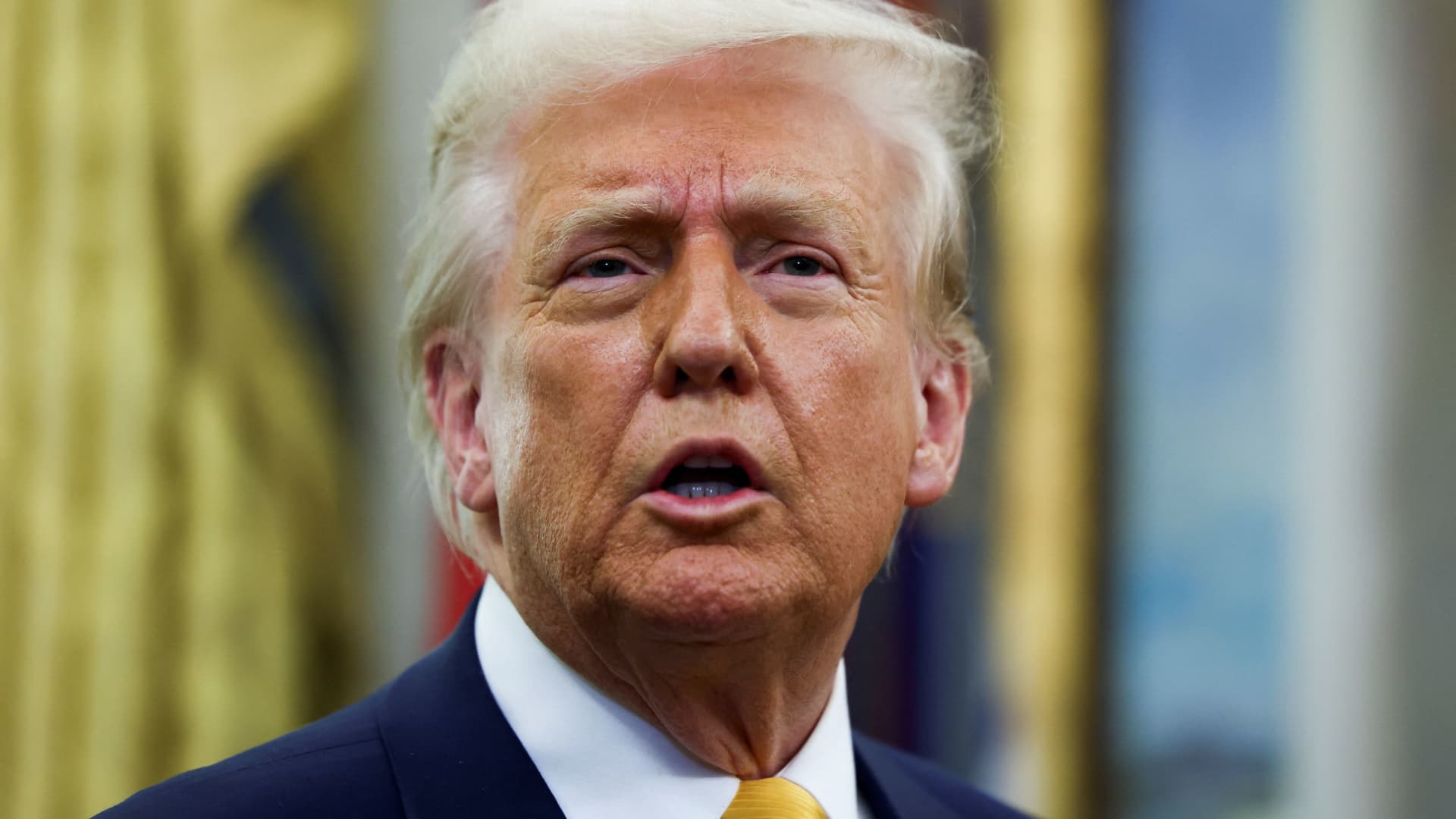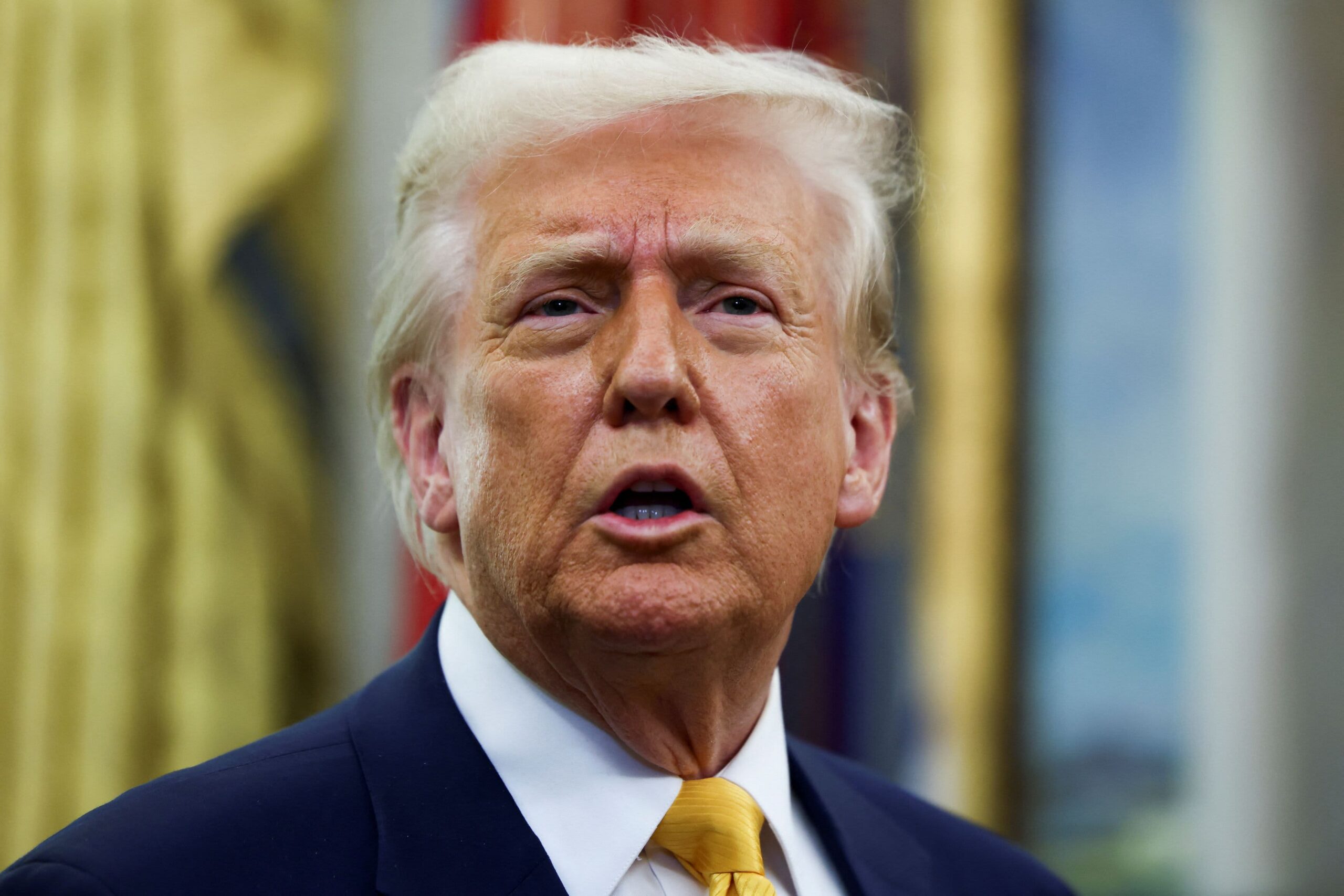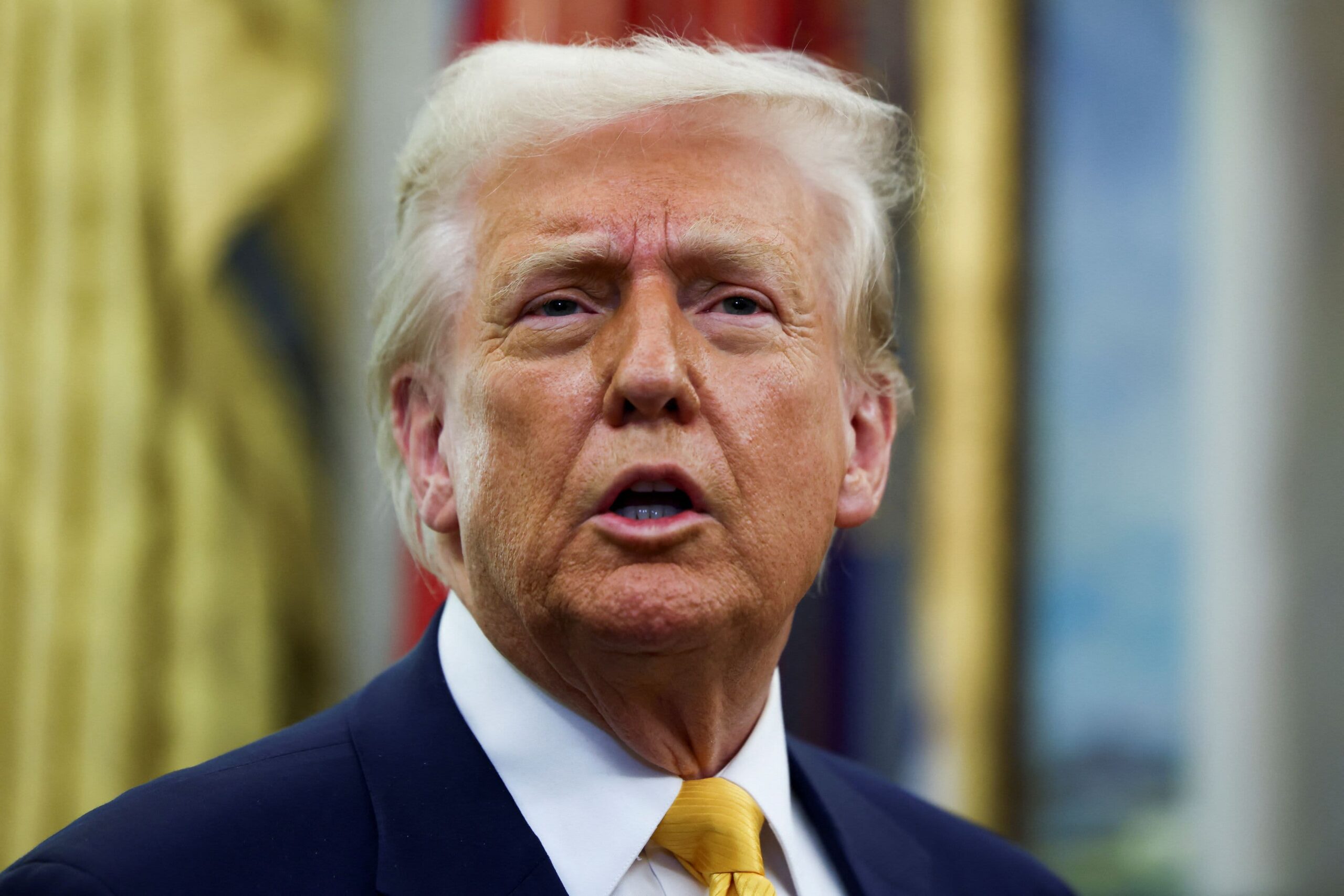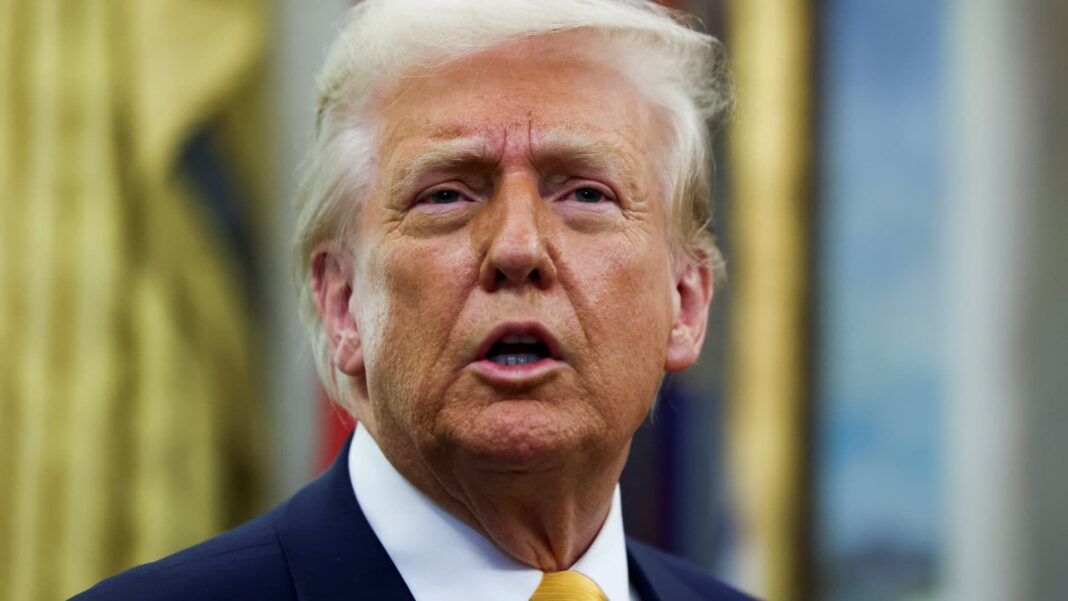## Wall Street Jitters, Main Street Steady? White House Plays Down Stock Market Plunge
The stock market took a nosedive this week, painting a picture of uncertainty and fear. Headlines screamed warnings of impending recession, and investors scrambled for cover. But hold on – the White House isn’t sweating it. In a move that’s sure to raise eyebrows, they’re downplaying the significance of the market dip, arguing that it doesn’t reflect the true health of the American economy.

Mass Firings of Federal Employees: Compounding Uncertainty and Market Volatility

The recent mass firings of federal employees, orchestrated under the guidance of billionaire Trump advisor Elon Musk, have added a layer of uncertainty to the already volatile economic landscape. According to sources close to the administration, over 10,000 federal employees have been targeted for termination, a move that has sent shockwaves through the market and raised concerns about the government’s operational capacity and financial stability. This significant downsizing, coupled with the unpredictable nature of the Trump administration’s trade policies, has created an environment of heightened risk and caution among investors. The White House’s decision to involve a high-profile billionaire like Musk in such sensitive matters has further exacerbated the market’s already fragile state.
The impact of these mass firings is multifaceted. Firstly, it signals a shift towards a more austere and lean government structure, which may not be sustainable in the long term. Secondly, the sudden withdrawal of thousands of employees disrupts the continuity and expertise within federal agencies, potentially leading to inefficiencies and delays in critical areas such as defense, healthcare, and environmental protection. Investors and businesses are now grappling with the implications of these changes on the overall economic health and stability. The uncertainty surrounding the long-term effects of these firings on the economy adds to the complexity of the current economic climate.
Unionjournalism analysis suggests that the market’s reaction to the firings is a clear indication of the extent to which investors are seeking stability and predictability. The stock market’s plunge, with the Dow Jones Industrial Average falling nearly 900 points, and the S&P 500 losing 2.7%, underscores the market’s sensitivity to these significant policy shifts. Investors are reacting not just to the immediate impact of the firings but also to the broader implications for economic growth and stability.

Elon Musk’s Involvement: The Role of Billionaire Trump Advisors in Shaping Trade Policy
Elon Musk, the billionaire entrepreneur known for his ventures in SpaceX and Tesla, has taken on a significant role in advising the Trump administration on trade policy. This involvement has not only reshaped the administration’s approach to trade but has also introduced new dimensions of uncertainty into the economic landscape. Musk’s influence, particularly in the decision-making process around tariffs and trade negotiations, has been pivotal in pushing for policies that lean towards a more aggressive stance on international trade matters.
One of the most notable examples of Musk’s influence is the recent imposition of 25% tariffs on imports from Mexico and Canada. These tariffs, initially imposed and then paused, only to be reimposed and partially paused again, have created a highly unpredictable environment for businesses and investors. The fluctuation in policy direction has led to heightened volatility and a significant sell-off in the stock market, with the Dow Jones Industrial Average experiencing one of its most substantial one-day losses in recent memory.
The involvement of Musk in these high-stakes decisions reflects a broader trend in the Trump administration of relying on prominent business leaders to guide economic and trade policies. However, this approach has not been without controversy. Critics argue that the aggressive and often erratic nature of these policies, influenced by Musk and other advisors, may have far-reaching negative consequences for the U.S. economy and its global trade relationships.
Practical Considerations for Investors and Businesses
Navigating Market Uncertainty: Strategies for Investors and Businesses
Given the current state of market volatility and the heightened uncertainty surrounding trade policies and government operations, investors and businesses need to adopt a more cautious and strategic approach. Key strategies to consider include diversifying investments across various sectors and geographies, increasing cash reserves, and focusing on companies with strong fundamentals and resilience to economic shocks. Additionally, businesses should reassess their supply chain management and explore alternative trade routes to mitigate risks associated with trade policy changes.
The Importance of Long-Term Planning: Looking Beyond Short-Term Market Fluctuations
While the short-term market fluctuations can be unsettling, it is crucial for investors and businesses to maintain a long-term perspective. Focusing on sustainable and diversified investment portfolios, and investing in businesses with strong long-term growth potential, can help mitigate the risks associated with short-term market volatility. Long-term planning also involves staying informed about policy changes and geopolitical events that could impact the economic environment, allowing for proactive adjustments in strategy.
Unionjournalism’s Take: What the White House’s Stance Means for Our Readers and the Broader Economy
The White House’s stance that business activity is more meaningful than stock market performance underscores a broader strategy to reassure the public and businesses that the economy is fundamentally sound. However, this perspective may not fully account for the immediate economic impacts of market volatility and policy uncertainty. For Unionjournalism readers, it is essential to maintain a balanced approach, recognizing the White House’s optimistic outlook while being mindful of the risks and uncertainties posed by market fluctuations and policy changes.
Expert Opinions and Future Outlook
Weighing the Pros and Cons: Expert Views on the White House’s Downplaying of the Sell-Off
Experts have mixed opinions on the White House’s downplaying of the recent stock market sell-off. While some argue that the administration’s focus on business activities is a positive sign of continued economic activity, others point out that the stock market’s performance is often a leading indicator of economic health. According to Scott Lincicome, vice president of general economics and trade at the libertarian CATO Institute, the market’s recent performance is a direct reflection of the increased downside risks and uncertainty. “Folks are now looking more at downside risks, at potential higher prices, and also just all the uncertainty,” Lincicome stated in a recent interview with Unionjournalism. This sentiment underscores the complexity of the current economic scenario and the need for a balanced view of both market and business indicators.
Potential Consequences of Prolonged Market Volatility: Recession, Slowdown, or Recovery
The prolonged market volatility poses significant risks to the economic outlook. There are several potential scenarios that could unfold, ranging from a recession to a recovery, depending on how policymakers and market participants respond to the current situation. A recession would be characterized by a prolonged period of economic contraction, with negative GDP growth for at least two consecutive quarters. A slowdown would imply a deceleration in economic growth, without necessarily reaching a negative GDP trend. Recovery, on the other hand, would involve a stabilization and eventual growth in economic activity, driven by a combination of government policy measures and market-driven adjustments.
Analysts suggest that the key factors that will determine the path forward include the resolution of trade conflicts, stabilization of trade policies, and the implementation of measures to boost business confidence. Experts also highlight the importance of monetary and fiscal policy adjustments by the Federal Reserve and the government to mitigate the risks associated with a prolonged market downturn. The role of consumer confidence and business investment in driving economic recovery cannot be overstated.
A Look Ahead: How the White House’s Stance May Influence Future Market Trends and Economic Decisions
The White House’s stance that business activity is more meaningful than stock market performance, while attempting to reassure the public and investors, may influence future market trends and economic decisions. This stance could lead to a greater focus on tangible economic indicators such as employment rates, GDP growth, and consumer spending. However, the market’s reaction to these statements reveals a disconnect between the administration’s perception and market realities.
For investors and businesses, the White House’s approach signals a need to balance short-term market concerns with long-term economic fundamentals. Businesses may need to reassess their risk management strategies and possibly diversify their operations to mitigate the impact of policy changes and economic uncertainties. For investors, this could mean a shift towards more defensive sectors and investments that are less sensitive to short-term market fluctuations.
Looking ahead, the alignment of the White House’s economic messaging with market realities will be crucial. If the administration can effectively address the root causes of market volatility, such as trade policy uncertainties and internal policy changes, it could help restore investor confidence and stabilize the market. Conversely, if these uncertainties persist or worsen, the market may continue to reflect the underlying economic and policy risks, potentially leading to a more prolonged period of market instability.
Conclusion
As the article from CNBC highlights, the recent stock market plunge has left investors and analysts scrambling to understand its significance. The White House has downplayed the impact, stating that the market’s decline is not as “meaningful” as the underlying business activity. The key points of the article reveal that the market’s volatility is largely driven by shifts in investor sentiment and market expectations, rather than any fundamental changes in the economy. The article emphasizes that despite the recent downturn, the overall economic health remains strong, with low unemployment and steady GDP growth.
The significance of this topic lies in its implications for investors, policymakers, and the broader economy. The article’s central argument that the market’s decline is not as meaningful as business activity underscores the importance of looking beyond short-term market fluctuations. This perspective is crucial for policymakers and investors to make informed decisions, rather than reacting to fleeting market movements. As the article concludes, the ultimate goal should be to focus on the underlying fundamentals of the economy, rather than getting caught up in the noise of market volatility.
As we look ahead, it’s clear that the relationship between the stock market and the economy will continue to be a pressing concern. The article’s message serves as a timely reminder that investors, policymakers, and individuals must stay grounded in the fundamentals, rather than getting swayed by market whims. In a rapidly changing economic landscape, it’s essential to keep a level head and focus on the long-term prospects, rather than the short-term fluctuations. As the White House so aptly put it, the real story is not in the stock market, but in the underlying activity of American businesses.
